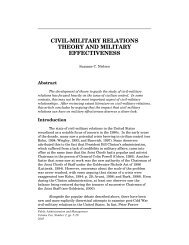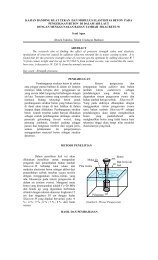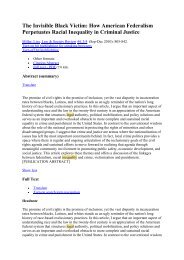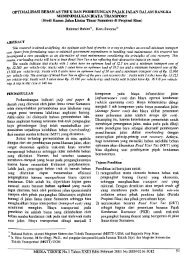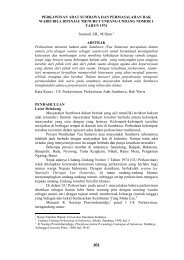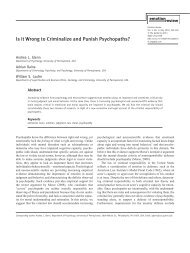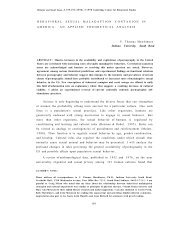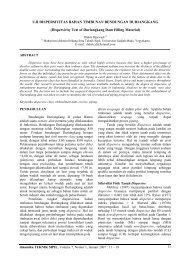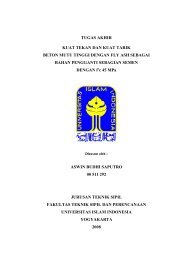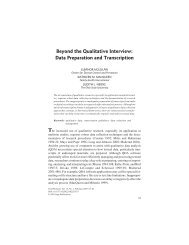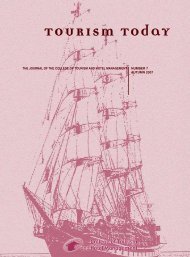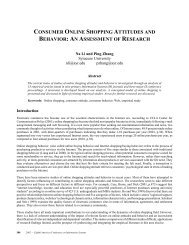Foreign Investment Strategies and Sub-national ... - E-Journal
Foreign Investment Strategies and Sub-national ... - E-Journal
Foreign Investment Strategies and Sub-national ... - E-Journal
Create successful ePaper yourself
Turn your PDF publications into a flip-book with our unique Google optimized e-Paper software.
Proposition 2: The more developed market-supporting institutions in a region are, the more likely foreign<br />
investors are to establish Greenfield operations in that sub-<strong>national</strong> region.<br />
To test this proposition in Vietnam, we propose three specific hypotheses, of which the first two match the<br />
hypotheses developed for proposition 1. Institutional barriers inhibiting access to local resources may inhibit<br />
foreign investment (hypothesis 1a), but they may also induce foreign investors to overcome these barriers<br />
through a JV with a local partner. A partnership with a local firm may enable foreign investors to access the<br />
resources of the partner, <strong>and</strong> thus overcome market imperfections. Where local institutions facilitate access to<br />
local resources, foreign investors would be less likely to invest in form of JV. Scarce local resources often<br />
relate to intangibles, such as marketing <strong>and</strong> technology-related assets, or to business networks. However, in<br />
emerging markets, scarce resources may also relate to tangible resources, such as real estate.<br />
In the Vietnamese context, access to real estate is a key constraint, as illustrated by the above statement<br />
by the Prime Minister. <strong>Foreign</strong> investors may thus avoid investing where real estate is in short supply, but they<br />
may also form a JV with a local firm controlling real estate. In consequence, l<strong>and</strong>-use-rights have been a key<br />
contribution of local JV partners in Vietnam (Nguyen et al. 2004). Provincial governments providing real estate<br />
for the use of foreign investors make it unnecessary to seek JV partners as means to access l<strong>and</strong>-use rights.<br />
We hypothesize that efficiency of institutions in supporting markets for critical resources encourages<br />
FDI in the form of Greenfield. As was the case with H1a, we test this hypothesis for provinces in Vietnam using<br />
real estate as a proxy for resources subject to institutionally-induced supply constraints.<br />
H2a: The more sub-<strong>national</strong> institutions facilitate access to scarce local resources, the more FDI the sub-<br />
<strong>national</strong> region receives in the form of Greenfield.<br />
In developing our framework (Figure 1), we argued that incumbent firms influence the investment climate<br />
both directly by controlling resources, <strong>and</strong> indirectly by influencing the evolution of formal <strong>and</strong> informal<br />
institutions at the local level. Incumbent firms are a powerful lobby influencing the local institutional<br />
17



